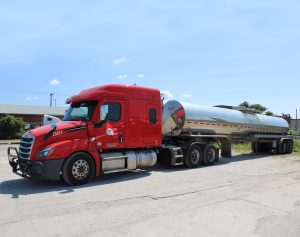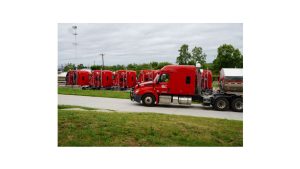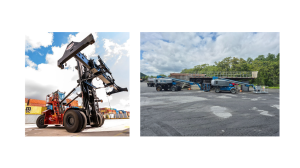Truck owner-operators face unique risks on the road, from accidents to cargo damage. The right insurance coverage is vital for protecting the driver and their business. In this guide, we’ll explore seven essential types of insurance coverage every truck owner-operator should consider.
Operating a trucking business comes with inherent risks, from accidents on the road to potential cargo damage. Securing the right owner-operator insurance coverage is vital for protecting your assets and livelihood as a truck owner-operator. Here are seven essential insurance coverages you should consider incorporating into your policy.
1. Collision Insurance
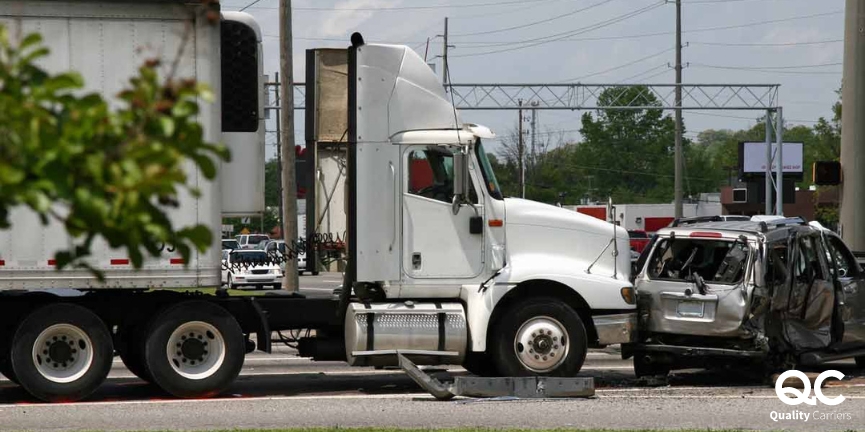
Collision insurance covers damage to your truck from an accident with other vehicles, regardless of fault. Whether it’s a minor or a major accident, this coverage helps pay for repairs to your truck, ensuring that you can get back on the road quickly. It’s particularly crucial for owner-operators who rely on their trucks for business, as even minor damage can disrupt operations and result in lost income.
2. Comprehensive Insurance
Comprehensive insurance covers damage to your truck caused by non-collision incidents, such as theft, vandalism, fire, or weather-related damage. It offers financial protection for unforeseen events beyond your control and could otherwise significantly impact your business. For example, if a hailstorm damages your truck, this insurance covers the cost of repairs, allowing you to avoid significant out-of-pocket expenses.
3. Commercial Liability Insurance
Commercial liability insurance (general liability insurance) is essential for truck owner-operators as it covers bodily injury and property damage claims arising from trucking operations. This insurance protects you against third-party claims for injuries or damage caused by your truck on the road. It covers legal fees, medical expenses, and settlements if you’re found liable for an accident or injury. Commercial liability insurance protects your business assets and ensures financial stability in case of a lawsuit or claim.
4. Cargo Insurance
Cargo insurance protects the freight or goods you haul as a truck owner-operator. It covers the cargo’s loss or damage while in transit, whether caused by accidents, theft, or other covered perils. Cargo insurance safeguards you against financial losses associated with damaged or lost cargo, ensuring that you’re not held responsible for replacing or reimbursing the value of the goods. This coverage is essential for trucking businesses transporting valuable or sensitive cargo, such as electronics, perishable goods, or hazardous materials.
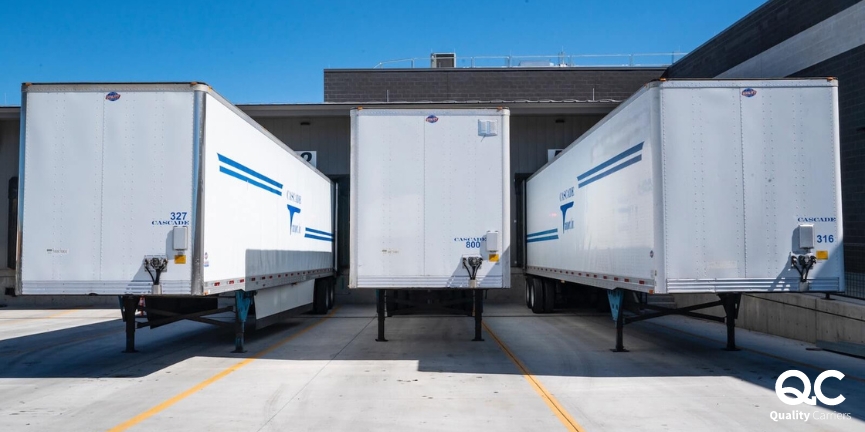
5. Non-Trucking Coverage
Non-trucking liability insurance, or bobtail insurance, provides coverage for owner-operators when they’re using their truck for personal or non-business-related activities. While primary liability insurance covers truckers on the job, non-trucking coverage kicks in when they drive the truck for non-business purposes, such as commuting to and from home or running personal errands. This insurance fills the coverage gap between commercial liability insurance, which only covers business-related activities, and personal auto insurance, which typically excludes vehicles used for commercial purposes. Non-trucking coverage ensures that owner-operators are protected even when they’re not actively engaged in work-related tasks, providing financial security and peace of mind during off-duty hours.
6. Trailer Interchange Insurance
This insurance is a specialized coverage that protects truck owner-operators when hauling trailers owned by someone else, such as a leasing company or another trucking business. This insurance is essential for owner-operators who participate in trailer interchange agreements, exchanging trailers with other carriers to complete their hauls. It provides coverage for physical damage to the trailers being transported and liability protection for damage caused to third-party property while the trailer is in your possession. It ensures you’re financially protected in case of accidents, theft, or damage to the trailers you’re hauling under a trailer interchange agreement. Having trailer interchange insurance is crucial for maintaining compliance with contractual obligations and mitigating potential financial risks associated with transporting third-party trailers.
7. Uninsured/Underinsured Motorists Coverage
Uninsured/underinsured motorists (UM/UIM) coverage is crucial to truck owner-operators’ insurance. It protects them when involved in accidents with drivers without insurance or sufficient coverage to pay for the damages incurred. This type of coverage ensures that truck owner-operators are financially safeguarded in scenarios where they would otherwise be left to cover the costs themselves.
- Uninsured Motorist Coverage
Uninsured motorist comes into play when the driver has no auto insurance. It covers medical expenses, property damage, and other losses in such cases. Without this coverage, the truck owner-operator would have to bear all costs out of pocket.
- Underinsured Motorist Coverage
Underinsured motorist coverage becomes relevant when the driver’s insurance is insufficient to entirely compensate for the damages caused in an accident. In such situations, UIM coverage bridges the gap between the other driver’s coverage limits and the total cost of damages, ensuring that the truck owner-operator receives adequate compensation for their losses.
As a truck owner-operator, investing in the right insurance coverages is essential for protecting the business, assets, and future earnings. Understanding the various types of insurance available ensures financial stability in the ever-changing trucking industry. Consult an experienced insurance provider to create a comprehensive insurance plan that offers the protection you need for your trucking business.
FAQs
Why is truck insurance essential for owner-operators?
Truck insurance is essential for owner-operators because it provides financial protection against accidents, property damage, cargo loss, and legal liabilities associated with operating a trucking business.
Can truck owner-operators customize their insurance policies to fit their needs and budget?
Truck owner-operators can customize their insurance policies to fit their specific needs and budget by selecting coverage options, adjusting policy limits and deductibles, and choosing features that best suit their requirements.
What steps should truck owner-operators take in the event of an insurance claim?
In the event of an insurance claim, truck owner-operators should promptly notify their insurance provider, document the incident details, cooperate with the insurance company’s investigation, keep thorough records of all communications, and seek legal or professional assistance if necessary.
Are there any additional or supplementary insurance coverages recommended for truck owner-operators to consider?
Additional insurance coverages recommended for truck owner-operators may include occupational accident insurance, bobtail insurance, trailer interchange insurance, equipment breakdown insurance, and pollution liability insurance to enhance their overall risk management strategy and provide additional protection against specific risks or liabilities.

